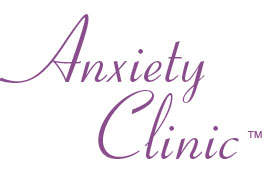Panic Attack Treatment - An Informative 'How To' Guide...
Panic attack treatment is a very specialised area. Unfortunately (as you are probably already aware) there is plenty of well-meaning but ultimately unhelpful advice out there. Panic attacks are one of those areas where everyone has an 'opinion' on what works best - but in terms of treatment or recovery such advice never seems to help long term. This website will dispel the myths and hearsay and instead give you the real facts with regard to what panic attacks are, why they happen, how they work, how to deal with them and ultimately how to recover permanently.
Dispelling The Panic Attack Myths...

"I have panic attacks so I must be faulty or broken!"
The truth is that at the Anxiety Clinic we've been helping people recover from panic attacks (permanently), seven days a week for seventeen years. In that time we have not encountered a single client that is faulty or broken - not even one! The reason is that panic attacks are not a sign of sickness - they are a sign of a healthy response to a bad situation. Thus if you suffer from panic attacks, it is not because you are ill, faulty or broken - it is because you are dealing with a bad situation the same way any healthy fully functional human being would. For more information on this look at our pages on What Is A Panic Attack and also What Causes Panic Attacks?
"I have panic attacks because I'm weak or a failure"
Nobody chooses to have panic attacks just as nobody chooses to be depressed. It is true to say that panic attacks can affect anyone under the right circumstances whether they are a special forces combat veteran, the CEO of a large business or an everyday person you find yourself standing behind in a supermarket queue. It is perhaps reasonably accurate to say that the vast majority of panic attack sufferers are 'stubborn' in terms of the way they think and often 'over think' things too much. If you're nodding right now or smiling, we're probably not far off - right? So it's not about being weak or failing, it's far more to do with having and maintaining a rigid mindset and trying to control far more than you should. It's OK, we can help you with this.
"Breathing into a paper bag will stop a panic attack"
Shockingly some of our clients have told us that their GP's advised them to carry a paper bag with them. The suggestion being that when the person begins to panic they should breathe into the bag... and this will somehow make everything OK. The best outcome that can be expected from this action is to merely delay a panic attack - it will not prevent it from happening. Thus, the GP's advice is merely to stall the panic attack rather than offer the correct treatment in order to address the underlying cause. There are many similar distraction methods such as this, but none are cures as none address the underlying cause behind the panic attack. Which leads us onto...
"There must be a medication that cures panic attacks"

No there isn't - period. Anti-depressant and anti-anxiety medication is regularly prescribed to people suffering from panic attacks, however it is never a cure. This type of medication cannot 'cure panic attacks' because they are not actually an illness or fault. In truth this medication merely suppresses brain function (essentially doping you) so that parts of your brain no longer operate correctly. You need to keep taking the medication to maintain the brain suppression, which can lead to addiction. It's true that some people will take pills for pretty much anything, but in reality whilst they're 'doped up' and temporarily feeling better - the underlying problem which originally caused the panic attacks is festering, growing and getting stronger in the background! Do pills really sound like a long-term viable solution?
"I'm a rational person - so I can think my way out of having panic attacks"
Over seventeen years of panic attack treatment I don't think we've ever met a client who hasn't already tried their hardest to rationalise their way out of the problem in an attempt to fix it. The trouble with attempting to use logic and reason to overcome panic attacks is that panic attacks are NOT DRIVEN by logic or reason. Panic attacks are actually emotionally driven. Now, remember a time when you were fuming mad angry about something and recall just how lousy your decision-making, logic and powers of reasoning were at that time. Pretty bad right? The reason is that in reality our emotions carry infinitely more weight than our rationalisation - that's just the way we're wired to work as humans. Thus, no matter how hard you try, rationalisation will not even make a dent in the emotional powerhouse driving your panic attacks. Recovery has to come from a different method entirely.
Panic Attack Recovery Formula: Knowledge, Understanding & Treatment.

Almost all of the well-meaning advice we read about on other websites is with regard to suppressing. delaying or otherwise distracting the sufferer away from a panic attack. It's perhaps true that you may have been looking for a solution in that respect. However, let's just take a step back for a moment and consider where the real problem lies.
You almost certainly view having panic attacks as being the problem because they feel so awful - right? If this is your perspective then you'll be looking for a solution in entirely the wrong place... as are many thousands of well meaning people who write about panic attacks on the internet. In truth panic attacks are not your problem they are a symptom of something else, and you're going to learn what that 'something else' is on this website.
Let's consider an analogy to help you understand the difference between a problem and a symptom:
Kerry works inputting orders onto a computer in a busy office. She arrives at work one morning and finds the strip-light above her workstation is flickering intermittently. Kerry is too busy to contact maintenance as she has a backlog of work to complete so she starts inputting her orders onto the computer. Within a couple of hours Kerry has developed a splitting headache and the pain is distracting her from her work. She goes to the staff room and takes a couple of aspirin to relieve the pain. Half an hour after returning to her workstation Kerry notices her headache has subsided and continues inputting her orders. However, a couple of hours later the headache returns and Kerry once again takes some aspirin. As before, the aspiring kick in and damp down the worst of her headache enabling her to get on with inputting the orders... but unsurprisingly, two hours later the headache is back!
In the above analogy, Kerry would no doubt label her splitting headache as 'a problem' and consider the aspirin to be some sort of solution. She would base this opinion on the headache being unpleasant and painful (hence its a problem) and the aspirin getting rid of the pain as being a solution. Little attention is paid to the fact that the headaches keep recurring and that Kerry has to keep taking aspirin to damp them down. This is the trap the majority of people (and health professionals) fall into in terms of dealing with panic attacks. It is also the model that helps doctors and pharmaceutical companies make huge profits from maintaining problems such as panic attacks, anxiety and depression with drugs - rather than addressing them correctly.
In reality the flickering strip-light is the real problem. The headaches are merely a symptom of working under the flickering strip-light. The aspirin are used to suppress only the symptom (the headache) but do not address the underlying problem (the flickering strip-light) which keeps renewing the symptoms. So long as the light flickers - the headaches will continue. Essentially, so long as the underlying problem remains - the symptoms will continue!
In order to fully and permanently recover from the headaches, Kerry needs to address the underlying problem and not to try in vain to endlessly suppress the symptoms with aspirin. The simple solution is to fix the light so it stops flickering. Once the light is fixed, the headaches (symptoms) will disappear on their own and not return. It is very simple when you understand the mechanics of how panic attacks really work.
If you are using well-meaning advice, CD's or a book to help you recover from panic attacks - you're almost certainly perceiving the panic attacks as being the problem. You're metaphorically throwing aspirin at it over and over (and may have limited respite) BUT you are not recovering. The reason you are not recovering is because you are trying to suppress the symptoms - not addressing the underlying problem. This information should help you in terms of knowledge and understanding with regard to how panic attacks really work.
Panic Attack Treatment And Recovery...

Now that you understand the mechanics of how problems and symptoms work differently you are in a far better position to make a good decision on the best way to recover from panic attacks permanently.
We're certainly not going to give you a sales pitch, because we don't need to. People come to us when they've found out for themselves that what we say is true - namely that cutting corners, hoping a CD or book will magically fix things (based upon the promise of the author), anti-anxiety medication or waiting months for free NHS therapy will not result in recovery. However, it is entirely your choice. If you want to re-invent the wheel and try to fix your panic attacks your way - the unnecessary delays, emotional consequences and the inevitability that you'll end up back where you started are based on what you decide to do today.
Treatment has to start in the right place. Although as humans we tend to have subtle differences - we also share much in common. This is particularly true of people who suffer with panic attacks. Having never met or spoken to you before let us tell you a little about yourself:
- You talk to yourself endlessly in your head analysing what has happened in meticulous detail.
- You run through a list of 'what ifs' before you do anything outside of your usual routine.
- You dwell and speculate over what 'could go wrong' and work out how you would respond to each situation.
- You are constantly planning and rehearsing what you would do if xyz were to happen.
- You focus very much on the future and what could go wrong.
- You use the past (particularly the unpleasant memories) as reference points for what may go wrong in the future.
- You may avoid certain places because you associate them with feeling stressed, anxious or having panic attacks.
- You are constantly aware of what others may think of your avoidance strategies.
- You feel guilty that way you live your life may impact others unreasonably.
- You structure much of your life around avoiding certain situations - which in itself is stressful.
- You either have disturbed sleep patterns, or if you sleep through you feel unrested the following morning.
- You try to control situations and circumstances to help you feel more confident - but this is hard work.
- When things go wrong - you try harder to control those things in the future, which in turn which stresses you more.
- You are bombarded by obsessive thoughts, which have become a problem in themselves.
- You spend much of your day trying to keep busy as it distracts you away from what goes on in your head.
- You feel constantly uptight physically and emotionally.
- The slightest tingle or sensation in your body is instantly blown out of proportion as being either panic or life-threatening.
- You worry what people will think of you if you have a panic attack in public.
- You invest significant time in 'researching' your problem.
- Knowing other people suffer panic attacks helps normalise your situation - but its not the same thing as recovery.

Whilst we're not suggesting every bullet point is applicable to you, considering we've never met is this a reasonably accurate description of your life? The truth is that your underlying problem can be found in the above statements (and probably a few more in addition). Panic attacks are brought about through 'thought process' which is essentially the way we deal with day to day information. To be more specific, it is actually the emotional responses created by your thought processes which compound (add up) to excessive levels and when reaching a given point - trigger a panic attack. For more specific detail on how thought process create emotions and emotions trigger panic attacks - have a look at our pages: What Is A Panic Attack and What Causes Panic Attacks
The important message to take away here is that panic attacks are just a symptom of the above bullet points. The way you deal with things in your head are the underlying problem which not only cause you to have panic attacks - but also maintain the cycle of them being repeated over and over. What needs to be addressed is the habitual way you have become accustomed to thinking and dealing with things through your thought processes.
Now, you'll probably reply something to the effect of "that's just who I am" or "I can't help it - it just happens" - and we'd fully understand. However, you are speaking from a position and perspective where you don't have the specific knowledge, understanding or tools to be able to 'change the way you think'. At best all you've had to work with up until now is your will-power and rationalisation. Remember we said earlier that panic attacks are driven by emotion, not rationalisation - so it is understandable why you've been trapped between a rock and a hard place.
What we will say is that ordinary people, just like you, with the same reservations, the same fears and the same belief that they can't change - all do so with our help. We understand that without the resources at your disposal it can seem like a monumental task to make such changes - but that's only because you don't currently have the resources. If you do choose to work with us, you'll quickly realise that you can change the way you think, your perspectives and the way you feel by applying what we advise.
Permanent Recovery From Panic Attacks...

As we said earlier, we don't do sales pitches. We accept that if you're serious about recovery you'll take in the information, make your decision and contact us. If you're just a window-shopper or are intent on finding a magical silver-bullet cure - then frankly we'd rather give our appointments to other people.
As we have an entire page dedicated to our panic attack treatment programme we'll just give you some bullet points to help summarise what you can expect from working with us:
- You will speak to a Consultant when you call - not an appointment clerk.
- The Consultant will answer your questions without obligation.
- If you would like to book an 'Initial Risk Free Consultation' - your Consultant will arrange that for you.
- Your Initial Consultation can be Face To Face at our Clinic, by Telephone or via Webcam - it's your choice.
- Your Initial Consultation will generally be booked to take place within 2-3 days of your initial contact. We endeavour to start your recovery and get you feeling better as soon as possible.
- If at any time or for any reason during your Initial Consultation you decide you don't want to continue working with us - it wont cost you a penny. We'll part company on good terms and remain friends. We only want satisfied clients.
- How long will it take? A ball park figure for Panic Attack Treatment is 6-8 hours in terms of Consultation time typically over 4-6 weeks Face to Face at our Clinic, or 6-8 weeks over the Telephone or Webcam.
- How much does it cost? Face To Face Consultations (90-minutes) are £95.00, whereas Telephone or Webcam Consultations (60-minutes) are £69.00.
- You will work with the same Consultant throughout your recovery. We will not pass you from person to person or department to department as a certain National Health Service seems to think is acceptable.
- You will have full telephone access directly to your Consultant between appointments.
- There will be no box ticking, bureaucracy or unnecessary form-filling. You will only be asked to fill in your basic contact details (name, address and telephone number) in terms of paperwork.
- You will be treated like a human being - not a performance statistic.
If you'd like more information on our panic attack treatment programme have a look at: Panic Attack Treatment
If you've done enough research and want to make a start on your recovery, choose from the following:
I live within travelling distance of Stoke on Trent, Staffordshire and want information on a Face To Face Consultation
I don't live near to Staffordshire so information on a Telephone / Online Consultation would be best for me.
Or alternatively, if you'd prefer to speak to a human being, you can contact us on 01782 855585, 11am to 9pm, seven days a week.




